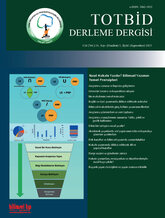
Scientific publications, as one of the cornerstones of academic research, play a crucial role in the advancement of knowledge and the facilitation of interdisciplinary interaction. However, the value of a scientific study is determined not only by its original findings but also by the relationship of these findings to the existing body of literature and the accuracy of citations to relevant sources. In scholarly publications, citation practices extend beyond merely acknowledging sources; they also serve to demonstrate respect for prior research, prevent plagiarism, track the evolution of ideas, and guide other researchers in their studies. With the increasing accessibility of information, the volume of scientific publications has expanded rapidly in recent years. This surge underscores the growing necessity for researchers to identify relevant sources accurately and to cite them correctly. However, the exponential rise in the number of publications has also confronted researchers with an overwhelming amount of information. As a result, conventional methods of citation and reference management have become increasingly time-consuming and prone to errors. In this context, modern reference management software offers significant advantages to researchers. These tools facilitate the automatic formatting of references in accordance with various citation styles, streamline bibliography organisation, and integrate seamlessly with plagiarism detection systems. This review study aims to underscore the importance of accurate citation in academic writing, compare different citation styles and contemporary reference management software, and highlight the benefits these tools provide throughout the research process. Furthermore, by incorporating recent studies from the literature, this work seeks to present the latest developments in the field and provide practical examples of their application.